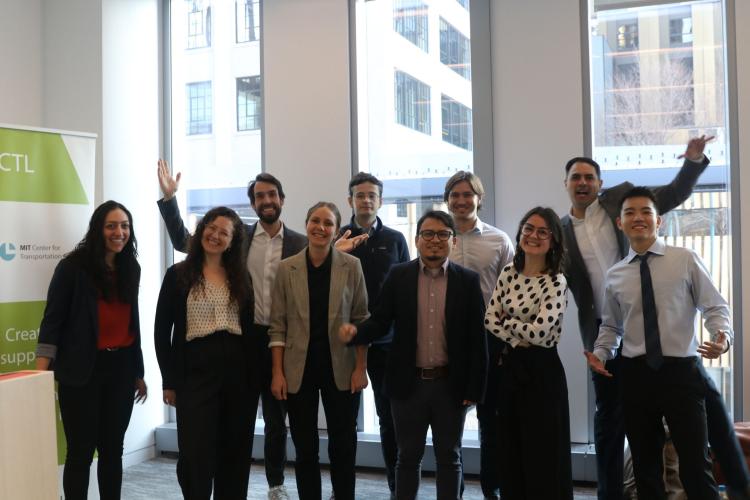
MIT CTL’s first-ever Emerging Research Showcase brought together early-career researchers and industry leaders at the MIT Museum on March 19, 2025. Organized by Drs. Miguel Rodríguez García and Selene Silvestri, the event served as a platform for researchers to share their work, receive feedback, and foster collaboration between researchers and industry.
The showcase featured a series of compelling presentations tackling inefficiencies, technological advancements, and future challenges in supply chain networks. Presentations included the following:
Moving Beyond Contracts: a Portfolio Approach to Transportation Procurement
Dr. Angi Acocella of MIT FreightLab shed light on inefficiencies in transportation procurement, particularly ghost lanes—contracted shipping lanes that never materialize. An astonishing 70% of contracts go unfulfilled, leading to wasted resources and inaccurate demand planning. Dr. Acocella emphasized the need for predictive solutions and industry-wide adaptation, though resistance to change remains a barrier.
The Race Against Time: Optimizing Fresh Food Supply Chains Under Uncertainty
Dr. Mauricio Gamez addressed the global challenge of food waste, noting that a staggering one-third of food produced worldwide never reaches consumers. Currently, 13% of losses occur during transportation. Gamez’s research focuses on optimizing fresh food supply chains under uncertainty to improve efficiency and minimize waste in logistics operations, particularly by reducing fresh food inventory times in warehouses.
The Warehouse of the Future: Navigating Technological Disruptions in Highly Automated Warehouses
Dr. Miguel Rodríguez offered insights into highly automated warehouses, highlighting potential risks such as system failures, cyberattacks, and even catastrophic events—one case saw a warehouse burn down due to a robot fire. With global cybercrime losses surpassing $9 trillion and a 110% increase in cyberattacks, securing warehouse automation systems is a growing concern.
Last-mile Logistics for Nanostores in Emerging Markets: Addressing the Parking Problem
Dr. Camilo Mora explored the complexities of last-mile delivery in urban areas, particularly in emerging markets where nanostores dominate grocery retail. His research found that each nanostore receives an average of 26 supplier visits per week, leading to inefficiencies. A pilot experiment demonstrated a 43-minute reduction per route, 10% cost savings, and a 4% decrease in carbon intensity. However, implementing such models at scale remains a challenge due to budget constraints in municipalities.
How Can AI Promote Human-Robot Collaboration in Warehouse Operations?
Dr. Benedict Jun Ma examined how AI can enhance human-AI collaboration in warehouse operations. While humans handle packaging and material selection, AI supports automation by improving contextualization, communication, and decision-making. His research, soon to be published in Sloan Management Review, explores the long-term impacts of AI integration in supply chains.
Optimizing Post-Flood Road Management: Weight Waivers, and Resilient Route Design for Enhanced Emergency Response
Dr. Katya Boukin tackled post-flood road management, a critical issue as flooding becomes a more frequent hazard worldwide. Her research highlighted the underutilization of weight waivers, lack of resilience planning in road networks, and the need for industry involvement in disaster response strategies. She advocated for a shift from asphalt to concrete roads, citing long-term cost benefits despite higher initial expenses.
For a full list of the day’s presentations, visit the showcase’s event page. The Emerging Research Showcase is a testament to MIT CTL's role as a hub for pioneering research, connecting academic advancements with practical industry applications. We hope to continue discussions between researchers and industry professionals to pave the way for future collaboration and ultimately shape the next era of supply chain innovation.